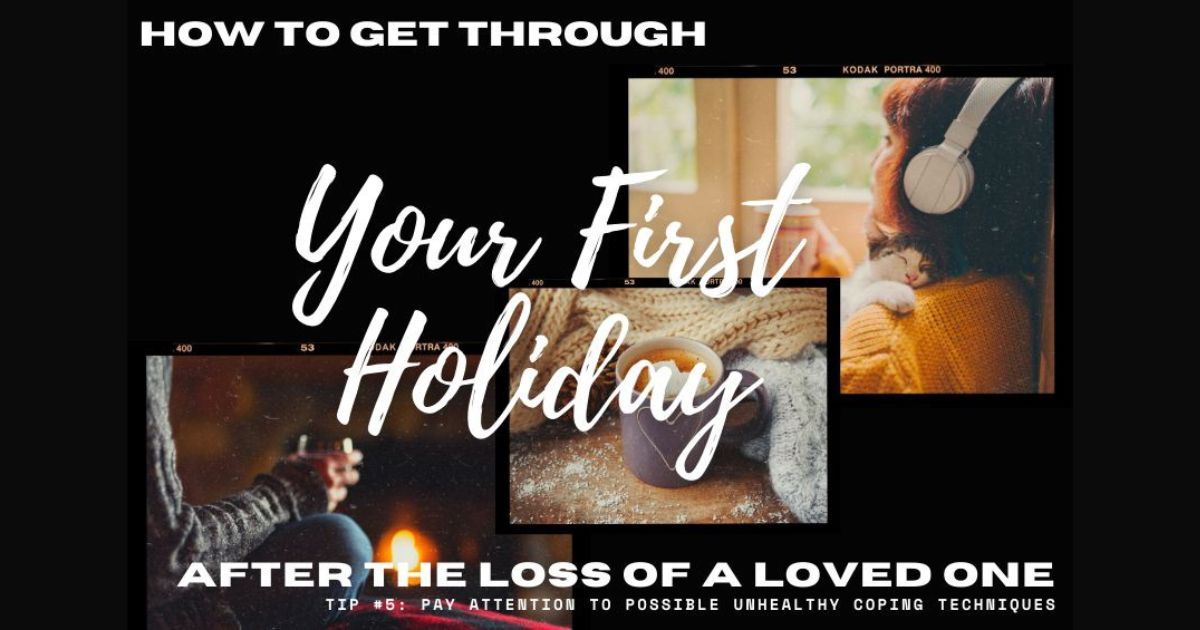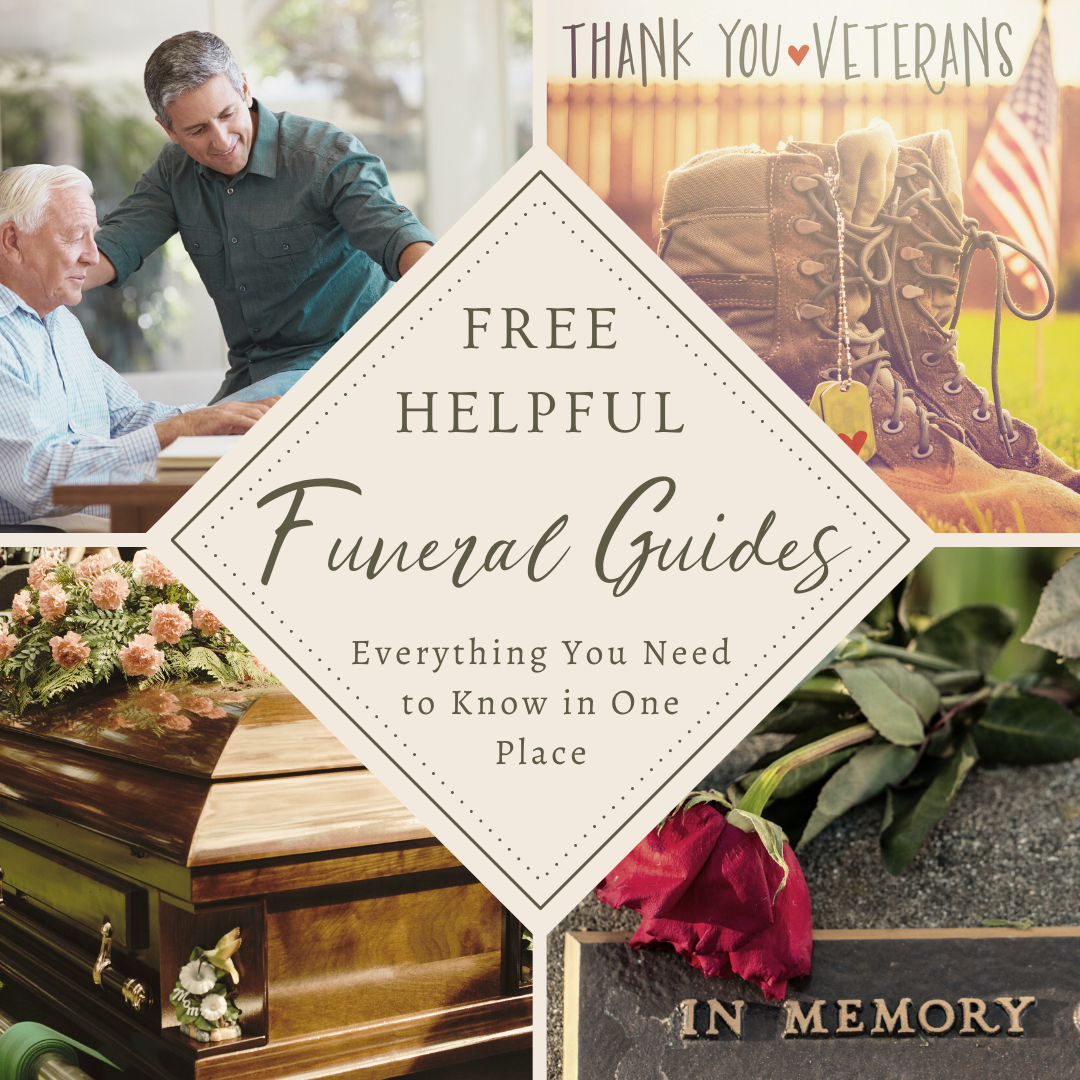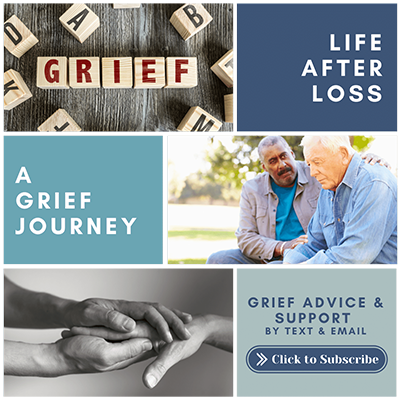A holiday season following the loss of a loved one can trigger many challenging thoughts and feelings. While this is totally normal, it is important to take care of yourself and pay close attention to your emotions.

A holiday season following the loss of a loved one can trigger many challenging thoughts and feelings. While this is totally normal, it is important to take care of yourself and pay close attention to your emotions.
Feelings of apathy and hopelessness can be warning signs that your grief might be putting you at risk for depression. Things such as loss of appetite and exhaustion are also warning signs your body may give that it is on overload.
While there are many healthy ways to cope with your grief, it can be easy to turn to unhealthy means of coping such as withdrawing socially or turning to alcohol or food.
Alcohol
Alcohol is a particularly tricky one to navigate, especially during the holiday season. Since alcohol is so deeply integrated into our lives, you will find it at most holiday parties and events. But of course, alcohol also carries the risk of dependency. It can be very easy to use it to self-medicate and numb the uncomfortable feelings you are feeling.
It can be easy to start rationalizing the use of alcohol, particularly in stressful times. But the problem is that alcohol is not a healthy coping skill. It can help fix the symptoms of our grief by providing a respite from our thoughts and feelings, but it doesn’t solve the underlying cause of our grief.
So, what should you be paying attention to? Become aware of why you drink. If you are drinking to cope with difficult emotions such as loss, stress, or despair, it is a sign that you should seek some alternative coping skills.
Social Isolation
While it is totally normal to want some time alone, sitting at home alone all the time is not a healthy coping technique either. This year may be even more difficult as many events that you may be looking forward to may be canceled altogether.
If you do have the opportunity to attend some events, try to pick the ones that make you the happiest or where you are most likely to see the people who care about you.
You may also find yourself spending more time alone as events you usually attend are canceled or family may not be able to visit you as they normally would. If this happens, don’t hesitate to reach out. Calls, texts and video chats can allow you to spend time with friends and family even if you are apart. You might even schedule a regular time to call or video chat and put it on your calendar. That way you are not as likely to put it off or forget.
If you find yourself unable to muster the energy to attend any events or spend time with anyone else, this may be a sign of depression. In this case it may be time to seek professional help from a therapist or counselor.
If you are supporting a griever, says Lively, "Do continue to contact them. People often come together to give support, then quickly fade away. Ask them out for coffee or lunch.”
How to Help the Griever
- If you notice the griever using other unhealthy coping techniques it can be difficult to discuss with them (and often it may backfire). Instead, it may be helpful to seek out a mental health professional who may have recommendations for you.
- There may be fewer events happening these days. If that is the case, you can do other things such as go for a walk to look at holiday lights or find an outdoor event to attend together.
- Provide support, even if it is through text messges, calls or video chats.
If you or a loved one need further support or resources, here are some options:
SAMHSA (Substance Abuse and Mental Health Services)
https://www.samhsa.gov/find-help/national-helpline
1-800-662-HELP (4357)
Grief Share
https://www.griefshare.org/
The Compassionate Friends - supporting families after the loss of a child
https://www.compassionatefriends.org/
American Foundation for Suicide Prevention
https://afsp.org/
National Widowers Organization
https://nationalwidowers.org/

